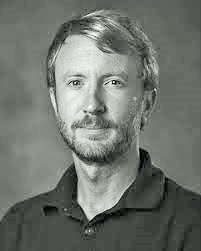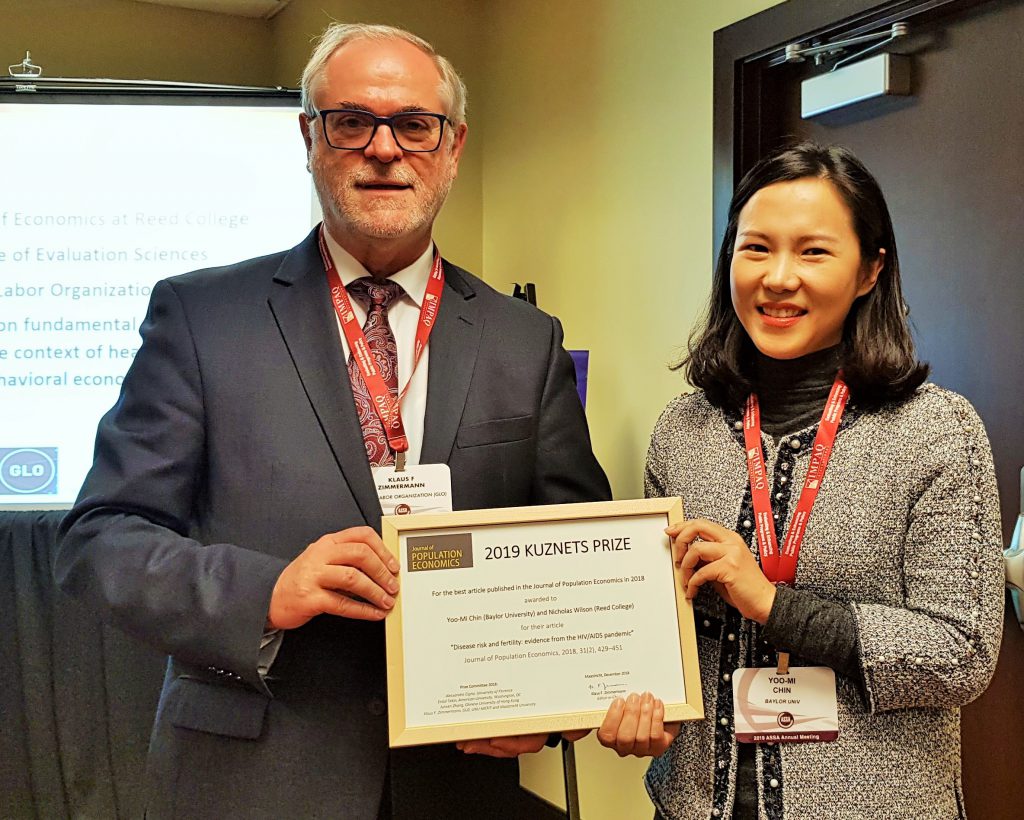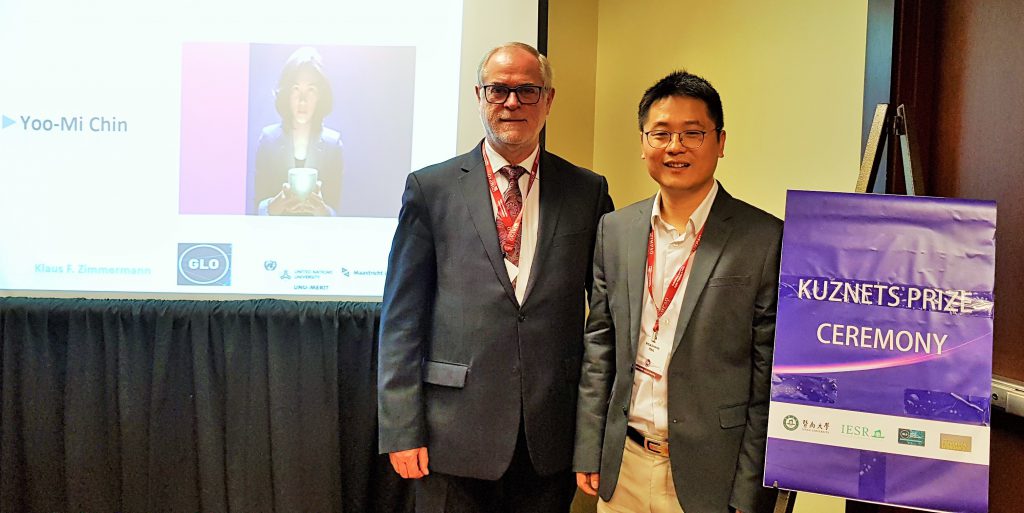The Kuznets Prize Paper of the Journal of Population Economics in a particular year is selected by the Editors of the Journal among the papers published in the previous year. Then the winners will be presented in a prize ceremony. This year the winners remained confidential until January 4, 2019.
The Kuznets Prize Ceremony 2019 took place at a Reception of the Institute for Economic and Social Research (IESR) of Jinan University on Friday January 4, 2019 as part of the ASSA 2019 Atlanta conference of the American economists, which is probably the largest gathering of academic economists in the world with typically far more than 10,000 participants. Very many friends of the Global Labor Organization (GLO) and the Journal of Population Economics who were participating at ASSA2019 followed the invitation of Dean Shuaizhang Feng, Head of the Institute for Economic and Social Research (IESR), who is also a GLO Fellow. A larger number of prominent economists participated, including many Editorial Board Members of the Journal of Population Economics and Kuznets Prize winners of previous years.
The Story
Yoo-Mi Chin & Nicholas Wilson, Disease risk and fertility: evidence from the HIV/AIDS pandemic, Journal of Population Economics, 31 (2018), 429–451.
Abstract: A fundamental question about human behavior is whether fertility responds to disease risk. The standard economic theory of household fertility decision-making generates ambiguous predictions, and the response has large implications for human welfare. We examine the fertility response to the HIV/AIDS pandemic using national household survey data from 14 sub-Saharan African countries. Instrumental variable (IV) estimates using distance to the origin of the pandemic suggest that HIV/AIDS has increased the total fertility rate (TFR) and the number of surviving children. These results rekindle the debate about the fertility response to disease risk, particularly the HIV/AIDS pandemic, and highlight the question of whether the HIV/AIDS pandemic has reduced GDP per capita.
The Authors
Yoo-Mi Chin is an Assistant Professor of Economics at Baylor University with a Ph.D. from Brown University. She is also a Fellow of the Global Labor Organization (GLO). Most of her research focuses on the analysis of domestic violence. She has published her previous work in the Journal of Applied Statistics, the Journal of Health Economics, and World Development, among other outlets. Prior to joining Baylor University, she was an Assistant Professor at the Missouri University of Science & Technology.
Nicholas Wilson is a Fellow with the Office of Evaluation Sciences, an Associate Professor of Economics at Reed College and the Chair of the Department of Economics. He is also a Fellow of the Global Labor Organization (GLO). His research focuses on fundamental puzzles about human behavior in the context of health, development, and behavioral economics. Prior to joining Reed College, he was a Visiting Scholar at the University of California, Berkeley and an Assistant Professor of Economics at Williams College. He has published a larger number of papers in journals including the American Economic Review, Demography, Economics & Human Biology, Journal of Development Economics and Journal of Health Economics.

Yoo-Mi Chin 
Nicholas Wilson
The Ceremony
Shuaizhang Feng, Head of the Institute for Economic and Social Research (IESR) of Jinan University and GLO Fellow introduced the Institute and warmly welcomed the Kuznets Prize Ceremony. Then Klaus F. Zimmermann, GLO President and Editor-in-Chief presented and explained the prize paper and introduced the authors. Yoo-Mi Chin received the prize for both authors.


Shuaizhang Feng & Klaus F. Zimmermann heading the Prize Ceremony

Ends;

